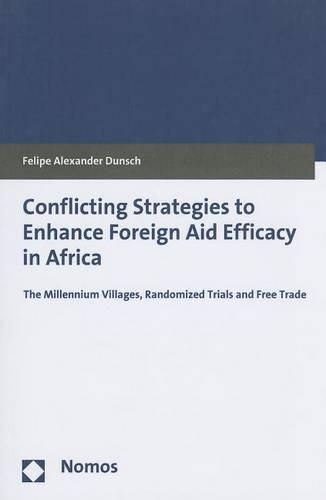Readings Newsletter
Become a Readings Member to make your shopping experience even easier.
Sign in or sign up for free!
You’re not far away from qualifying for FREE standard shipping within Australia
You’ve qualified for FREE standard shipping within Australia
The cart is loading…






Science is split over the reasons for foreign aid’s failure in the second half of the last century. The author elucidates the as yet confusing debate and assesses novel approaches to render international development cooperation more effective. Optimists are convinced that sub-Saharan Africa is stuck in a poverty trap and just necessitates a massive push in foreign aid to be freed. One approach to put this theory into effect is the Millennium Villages. Skeptics don’t believe in poverty traps. They rather advocate the point that bad governance is the root cause for stagnating development. Development aid must be restructured. The so-called randomized controlled trials (RCTs) are one way to explore which aid projects entail positive impacts. Foes share the view that foreign aid is the cause for Africa’s economic shortfall. Wrong incentives, distorted markets and dependency are the products of endless money flows from North to South. In its current form, development aid must be ceased. The continent is ready to finance its development through the mechanism of free markets. This requires the liberalization of global trade and the cut-back of national subsidies in the developed world. Felipe Alexander Dunsch is an expert on foreign affairs and development cooperation. He worked with the Delegation of the European Union to the United Nations, the World Bank and internationally operating political consulting companies.
$9.00 standard shipping within Australia
FREE standard shipping within Australia for orders over $100.00
Express & International shipping calculated at checkout
Science is split over the reasons for foreign aid’s failure in the second half of the last century. The author elucidates the as yet confusing debate and assesses novel approaches to render international development cooperation more effective. Optimists are convinced that sub-Saharan Africa is stuck in a poverty trap and just necessitates a massive push in foreign aid to be freed. One approach to put this theory into effect is the Millennium Villages. Skeptics don’t believe in poverty traps. They rather advocate the point that bad governance is the root cause for stagnating development. Development aid must be restructured. The so-called randomized controlled trials (RCTs) are one way to explore which aid projects entail positive impacts. Foes share the view that foreign aid is the cause for Africa’s economic shortfall. Wrong incentives, distorted markets and dependency are the products of endless money flows from North to South. In its current form, development aid must be ceased. The continent is ready to finance its development through the mechanism of free markets. This requires the liberalization of global trade and the cut-back of national subsidies in the developed world. Felipe Alexander Dunsch is an expert on foreign affairs and development cooperation. He worked with the Delegation of the European Union to the United Nations, the World Bank and internationally operating political consulting companies.